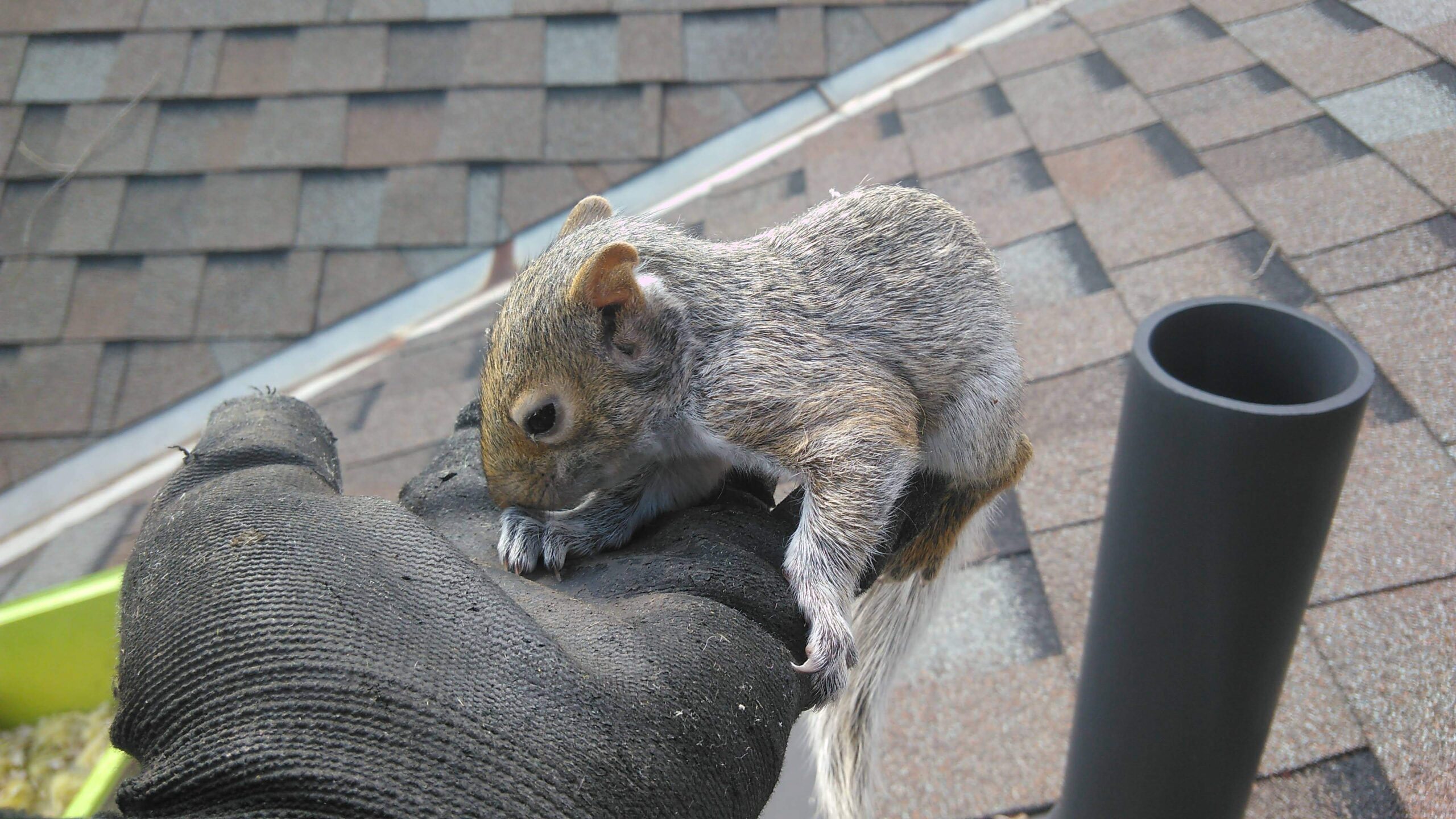Squirrels are intriguing creatures. They are surprisingly intelligent and very communicative. You may have heard one squawking at you from a tree without even realizing it. At Skedaddle Humane Wildlife Control in Milwaukee, we are fascinated by this animal’s behaviors. Here is a little information on how squirrels communicate and what their sounds likely mean.
How Squirrels Communicate
As hinted above, squirrels communicate with each other and other species with squawk-like calls. They are quite vocal creatures. In some cases, squirrels even talk to predators, warning them to stay away. Although it often sounds like squirrels are chatting away, they don’t have a language in the same way that humans do. Instead, research indicates that they are making instinctive noises that they can understand intuitively. Imagine if you heard a person gasp suddenly. It isn’t a word with a specific meaning. However, you can understand what the sound means in a general sense. Squirrel communication is a lot like this.
In other words, squirrel communication is all one-way. Each critter is saying something to the others without any responses. The listeners just listen (maybe humans could learn something from squirrels). Squirrels also sometimes use their tails and body language to communicate. For example, they may point out the potential danger to each other using their tails like a pointing finger. Like other animals, squirrels adopt more relaxed or aggressive postures depending on the meaning of their squawks.
What Different Sounds Mean
Despite not being a formal language, squirrel sounds have a lot of meaning behind them. Humans can listen to the critters’ noises and determine the rough meaning of each chirp and rattle.
These are some example of different squirrel vocalizations:
- Sounding the Alarm: Squirrels have many predators that may attack from above or below, so they are always on the alert. If they spot someone or something dangerous, they will sound the alarm with a combination of buzzing, barking, and moaning. These tend to be noisy and intense.
- Looking for a Mate: Like other mammals, squirrels have a mating season during which males will pursue females. They let out a “muk-muk” sound that is relaxed and similar to a baby squirrel. This indicates to females that they aren’t a threat.
- Asking for a Meal: When a baby squirrel is feeling hungry, it will let out that “muk-muk” sound. It is quiet and similar to puffing. It is hard to hear from the ground, but the mother squirrel will pick up on it loud and clear.
- Preparing for a Fight: Squirrels are territorial. They will defend their trees and nests from other squirrels. This includes unfamiliar squirrels, other subspecies of squirrel and food competitors. When they are ready to fight for their territory, squirrels let out rattles and screeches: the former to indicate their presence and the latter to warn off competitors.
As you can likely tell from the above descriptions, squirrel sounds are quite complex. They let out everything from a low, buzzing sound to an aggressive screech. Some sounds are percussive while others are held for longer.
Try heading outside the next time you have some warm weather and active squirrels. Listen to some of their chatterings and watch what they are doing. You may be able to identify some of what they are communicating. You may even hear them squawking at you as you get close.
Milwaukee Squirrel Removal Services
Although squirrels are interesting and have some very amusing behavior, they can also be pests. At Skedaddle Humane Wildlife Control, we understand that you may want to have your squirrel problem handled. Call on us when you need Milwaukee squirrel removal services. We focus on long-term solutions including removal and exclusion.





